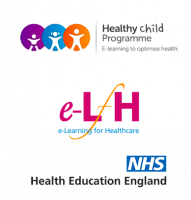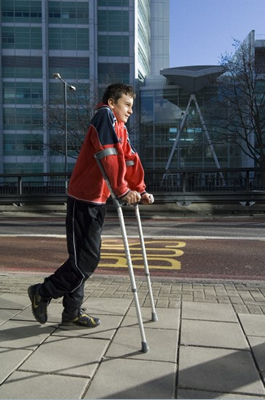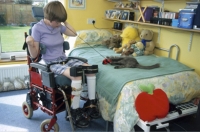Vocational Readiness in Long-term Conditions and Disability



This session addresses the impact of having a long-term condition and disability during adolescence on education and vocation. In addition, the session explores the legislation in place to support young people achieving their vocational potential.
Learning Objectives
By the end of this session you will be able to:
- Describe the impact of long-term conditions and disability on educational/vocational developmental milestones
- Describe the implications of the Equality Act for young people with long-term conditions and disability
All adolescents including those with long-term conditions and/or disabilities have hopes and dreams. They want to:
- Be valued as human beings
- Be treated with dignity
- Have access to education and job training
- Have access to opportunities for social experiences and community involvement, recreation and worship
- Be able to find meaningful work for reasonable pay when they are ready for it
Yet studies show that adolescents with long-term conditions and/or disabilities are more often unemployed and more socially isolated. Studies have also shown that those who are involved in their care have lower expectations for their future.
Before commencing this session you should complete the following AH session:
- 06_001 The Experience of Long-term Conditions During Adolescence (401-0025)
Dr Janet E McDonagh is a Clinical Senior Lecturer in Paediatric and Adolescent Rheumatology at the Centre for Musculoskeletal Research at University of Manchester and Honorary Consultant paediatric and adolescent Rheumatologist at Royal Manchester Children’s Hospital.
Her main clinical and research interests are in adolescent health and transitional care. She has a particular interest in models of care for adolescents with chronic conditions that support young people’s emerging capacity for self-management, that ensure appropriate health risk assessment, support transition to adult health care, adherence to treatment guidelines and engagement with other health care services.
She is a member of the Barbara Ansell National Network for Adolescent Rheumatology, convenor of the Royal College of Paediatrics and Child Health Young Person’s Special Interest Group, co-chair of the Royal College of Physicians Young Adult and Adolescent strategy group and is on the advisory council of the Association for Young People’s Health.
Dr McDonagh is also involved in the development of training for health professionals in adolescent medicine including her role as a trainer in the European Teaching Effective Adolescent Care and Health initiative

- Acute Medicine | Falls 02 knowledge C
- Posted By eIntegrity Healthcare e-Learning
- Posted Date: 2024-11-28
- Location:Online
- This session revises the basic physiology of water and sodium regulation, and demonstrates a structured approach to the assessment and management of patients with hyponatraemia.
- Acute Medicine | Falls 02 knowledge B
- Posted By eIntegrity Healthcare e-Learning
- Posted Date: 2024-11-28
- Location:Online
- This session lists the drugs that can commonly cause hyponatraemia. It also gives sources of further information if less common drug causes are suspected.
- Acute Medicine | Falls 01 knowledge C
- Posted By eIntegrity Healthcare e-Learning
- Posted Date: 2024-11-28
- Location:Online
- This session gives an overview of the National Institute for Clinical Excellence (NICE) guidelines and discusses the medical assessment and management of falls.
- Acute Medicine | Falls 01 knowledge B
- Posted By eIntegrity Healthcare e-Learning
- Posted Date: 2024-11-28
- Location:Online
- This session discusses the diagnosis and treatment of osteoporosis.
- Acute Medicine | Falls 01 knowledge A
- Posted By eIntegrity Healthcare e-Learning
- Posted Date: 2024-11-28
- Location:Online
- This session discusses the causes of falls in older people.








